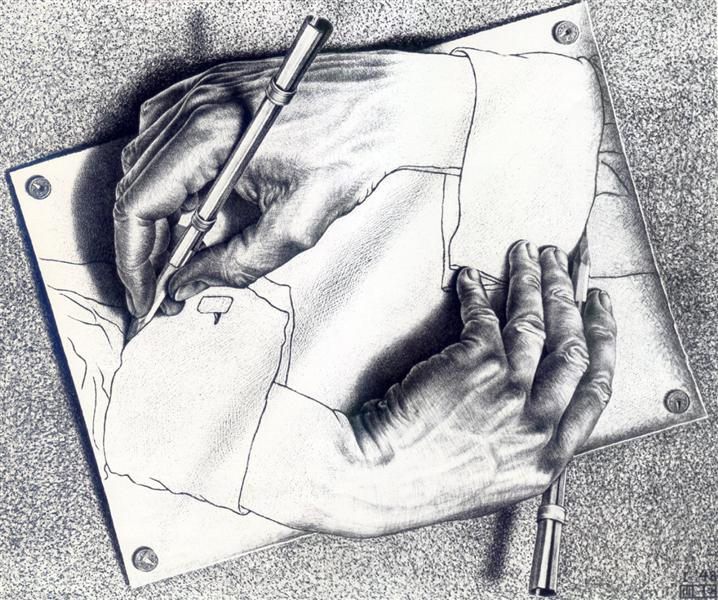Gödel: Difference between revisions
Fractalguy (talk | contribs) mNo edit summary |
Fractalguy (talk | contribs) mNo edit summary |
||
| Line 1: | Line 1: | ||
[[File: | [[File:Escher-drawing-hands.jpg|thumb|Escher uses [[self-reference]] extensively in his [[art]]]] | ||
''The tao that can be described is not the eternal Tao. The name that can be spoken is not the eternal Name'' -Lao Tzu | ''The tao that can be described is not the eternal Tao. The name that can be spoken is not the eternal Name'' -Lao Tzu | ||
Latest revision as of 10:06, 8 February 2024

The tao that can be described is not the eternal Tao. The name that can be spoken is not the eternal Name -Lao Tzu
Godel's incompleteness theorems are fundamental to understanding the limits of scientific and mathematical knowledge and the power of self-reference. It proves the Taoist saying by demonstrating that we can never fully determine what is true using the language of mathematics.
Gödel, Escher, Bach should be considered required reading for a full understanding of metaculture.
View All References to Self-Reference
Here's a basic explanation of Gödel's incompleteness theorem if such a thing exists.
A free online course from MIT is available to help get the most out of this seminal work.
Technically this is based on another book by Hofstadter but it does a good job explaining a lot of the concepts of recursion and consciousness that are in GEB.